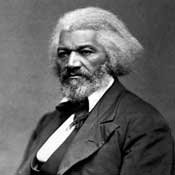I'm a Christian. More accurately, I'm a Christian deeply formed by what many would call evangelical and Pentecostal sensibilities. I grew up in a rural Missionary Baptist Church, joined a large urban United Methodist Church in my teens, and cultivated my call to ministry in a nondenominational charismatic storefront prior to graduating from high school.
Exuberant rejoicing, shrieks of ecstasy, reflective communion and singsongy preaching are all memories of how the saints had church. If you need to label me, just call me a Bapti-metho-costal. I am unapologetically one-third Baptist, one-third Methodist and one-third Pentecostal. Though I've also encountered other beautiful traditions (among them Jewish, Buddhist, Eastern Orthodox and Episcopalian), these three religious cultures have dominated my Christian formation.
Central to this faith is a blessed assurance that Jesus was and is real, that he came to earth to redeem us, lived a sinless life, was crucified on an old rugged cross, died and was buried. On the third day, he rose again with all power in his hand, conquering Satan, sin and shame. And we bear witness to this Gospel in the power of the precious Holy Ghost, emboldened by spiritual gifts and virtues to live the Gospel-way for our Lord.
It is this theological worldview that causes some to wonder why I engage in the good fight for freedom, why I'm concerned about the least of these, why I want justice to roll down like rivers and righteousness like a mighty stream. Since beginning my pastorate at Mount Helm Baptist Church, I've been a part of two religious coalitions, one seeking payday-lending reform and the other objecting to the unintended consequences of Initiative 26. Some of my evangelical friends ask, "Isn't Jesus enough? Shouldn't we only be concerned about saving souls from hell?" My social-justice sisters and brothers suggest that I can't be for freedom and the "white man's oppressive religion," and that the truest journey toward justice is without Jesus.
I say both of these groups are wrong.
Looking at the history of evangelicals and Pentecostals in this country—long before Jerry Falwell and Pat Robertson—we see a passionate Gospel-centered faith that bends toward justice. Of course, not every evangelical Christian of yesteryear was a freedom fighter, but so many of them were.
Abolitionists and advocates for women's suffrage had prophetic Christians like Frederick Douglass and Sojourner Truth admonishing American Christians to do what Jesus did. Enslaved Africans who converted to Baptist and Methodist Christianities experienced liberation through the account of the Hebrew Exodus and in the words of Jesus who came to set the captives free. Fannie Lou Hamer and Martin Luther King Jr. Strove for freedom believing that Jesus called them to be sick and tired of social sin and to be drum majors of justice. Charles Finney, John Wesley and many other evangelists during the Great Awakening revivals believed in salvation and social holiness as part of the Gospel whole.
American Pentecostal pioneers like William Seymour adamantly contended that the truest witness that somebody received the Holy Ghost wasn't their ability to speak in tongues but their grace-given ability to love someone of a different race or nationality. Early witnesses of Pentecostalism's embryonic era stated that the Jim Crow-era color line was being washed away in the blood of Jesus and that the Spirit was turning enemies into friends.
Though not exclusively a church-led movement, the Civil Rights Movement was largely shaped by religious convictions, and the rhythm of the black churches set the sound track to many meetings and marches.
Loving Jesus isn't antithetical to justice. In fact, they are intimately woven together. Jesus, preaching in the power of the Spirit, announced that his was a ministry of liberation (Luke 4) and that his message of the kingdom of God was, in part, an exposition how we are to live here-and-now as we wait patiently for the hereafter.
Any gospel that is just about souls being saved from hell with a sure ticket into the pearly gates is too small. Our evangelical and Pentecostal ancestors understood this. That's why they built hospitals and schools, marched and strategized for a better world.
I suppose my deep convictions regarding Christian advocacy emerges from my black church experience. Though not perfect or monolithic, the black churches in which I've worshipped have been attentive to the transformative power of the Gospel, both for individuals and society. Many of my colleagues haven't been so easily pimped by politicos seeking evangelical "values voters"; wedge issues like abortion and gay marriage haven't overpowered our sense that economic parity isn't just a justice issue—it's a Jesus issue. The Bible speaks more about our right relationship to currency than it does heaven or hell. Prophetic Christianity echoes the piercing voice of the Hebrew prophets and Jesus of Nazareth.
It's time that evangelicals and Pentecostals recovered our commitment to a Gospel-hued ministry of mercy and justice. In a state that's overwhelmingly evangelical in its Christian expression, it's heretical that so much racism, sexism and classism is still flamboyantly real. Too often the church in Mississippi has ordained suffering, being the sanctifier of injustice and social evil. This is sin manifested both individually and institutionally. It must be called out and genuinely repented for.
It's also time for non-evangelicals and even non-Christians to seek to know more about us beyond popular conjecture and caricature. We're not all women-hating, gay-bashing, people-condemning hypocrites. Some of us seek the Holy Spirit daily to make us more courageous, more loving, more just. Many of us are intelligent, compassionate, justice-oriented cracked pots who love the Lord because he heard our cry and pitied every groan.
And please know that this Bapti-metho-costal likes his justice with his Jesus, thank you very much!
Now let the church say, "Amen!"



Comments
Use the comment form below to begin a discussion about this content.
comments powered by Disqus